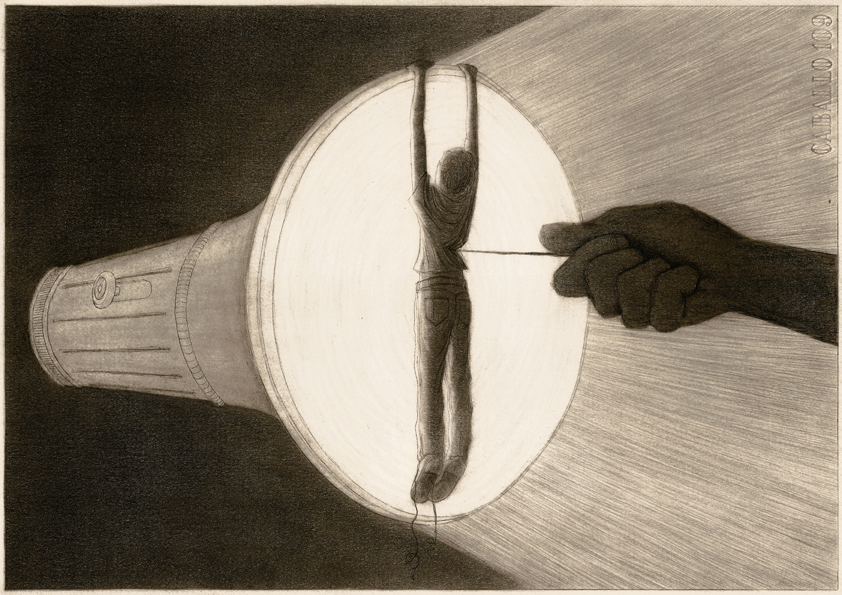 Rafael Felipe Martínez Irizar, a Cuban citizen of mixed race from Cienfuegos, and the son of Alfredo and Gregoria, will turn 44 this coming May 26. A few days later, he will have served 2 of the 5 years imposed on him as a sanction for the crime of illegally leaving Cuban territory.
Rafael Felipe Martínez Irizar, a Cuban citizen of mixed race from Cienfuegos, and the son of Alfredo and Gregoria, will turn 44 this coming May 26. A few days later, he will have served 2 of the 5 years imposed on him as a sanction for the crime of illegally leaving Cuban territory.
I do not know him personally. I read his file, Case #420 of November 26, 2009, filed by the Office of the Popular Provincial Justice Court of Cienfuegos. I also learned about some of his life story, or, better said, his criminal history.
He committed his first offense when he was 20 years old. He had not yet served the term of one year, as imposed by the courts while he was in a correctional detention center, when his term was increased to three years, on the basis of contempt of court.
In 1993 he once again committed an offense. He was first sentenced to pay a fine of 3,600 pesos (national currency) for attempting to flee the country illegally. Afterwards, he was sentenced to 5 years in prison for money counterfeiting and fraud. In 1995, he unsuccessfully attempted an escape from prison and the sentence was increased to 7 years.
Rafael Felipe, despite not being a man who follows a behavioral model worth imitating, is nevertheless someone with a work relationship with the Cuban State. “He talks badly about the Revolution,” the court concluded. “Yet he participates in all activities of mass organization.”
The judicial organ of Cienfuegos referred to his behavior as “dreadful.” “He gets involved with all sorts of people, drinks excessively, and disturbed the peace constantly, for which misdemeanors he has been fined several times between 1998 and 2008,” reads the appraisal. A repeating felon who is well aware of the consequences of his acts and of directing his behavior.
In his story, I see so many Cubans who, daily, at street corners or in parks, drink to vent their sorrows and frustrations. Those who seek, in the deliriums of alcohol, the strength to scream what they would never be able to talk about in sobriety.
Could it be that, in this country, only alcoholics are brave enough to say what they think out loud? Will we need to be entirely hopeless to let go of our fears? Or that good sense simply alienates?
Beyond what his penal antecedents are, Rafael’s life illustrates something else. It is the example that thousands of Cubans witness every day and that convinces them their opinions should remain hushed. His story makes one feel the effects of punishment-to-set-an-example and reaffirms the thesis that ‘”only delinquents are against the Revolution.”
Martínez Irizar is serving his new sentence. This time, because he tried to escape his context. A friend “told him about the possibility“of taking a vessel to flee the country. He accepted, and the Cienfuegos courts sentenced him, despite the fact he never executed the plan.
Translated by T
February 3 2011
